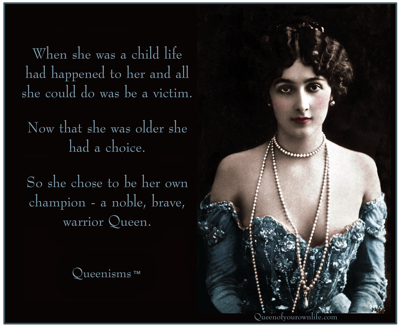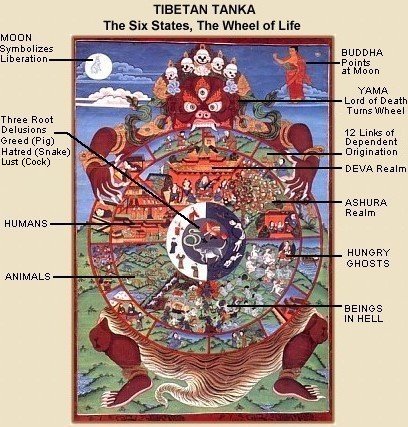Holding on to the past slows us down and prevents us from moving forward. .Many of us find it hard let go of people and memories because we’re attached. Changing our perspective on change and being kind to ourselves gives us the courage to move on. (Estimated reading time: 4-5 minutes)
“To let go does not mean to get rid of. To let go means to let be. When we let be with compassion, things come and go on their own.”
— Jack Kornfield
How many of us are guilty of hanging onto relationships, material possessions, and outdated ways of thinking that drain our energy? How many of us believe in the false notion that we won’t be happy if we let go? Why do so many of us continue holding on to the past?
Romantic notions cause us to lament over loss and engage in unhealthy patterns of self-pity and victim mentality. This significantly reduces our chances of making peace with the past and moving on.
Leaving the past behind is challenging because, in some way, it’s tied to our instinctual fear of death. The finality of an ending can be scary and painful. Not knowing what lies ahead is discomforting, and we feel a loss of control.
What many people fail to realize is that the cycle of life, death and transitions is a natural process; every entity that exists must pass through it. We see this happen everywhere in nature and in the cosmos.
A caterpillar must “die” before it can transform into a butterfly. Even a bright and mighty star eventually “dies” before it disintegrates into pieces that form the components of another new celestial object.
Our ancestors had an easier time accepting these cycles because of their strong connection to the natural world and the spiritual realm.
Ancient cultures such as the Egyptians had a deep respect for the dead and believed that it was only the beginning of another chapter in a person’s life. They engaged in elaborate ceremonial rituals with the intention of preparing the deceased for the after-life.
What if we could approach these mini-deaths with the same kind of acceptance and reverence? If we did, we would find it much easier to deal with the shifts that occur throughout our life.
The truth is that none of the losses that we experience, no matter how devastating it seems in the moment, can take away our purpose for living. As long as we’re alive, we have another chance to make an impact.
There is a part of us that is eternal and timeless. If we can identify with this part of our being, instead of the superficial constructs we’re tied to, we’ll see loss as nothing but an opportunity for growth and to rise above difficulties.
This doesn’t mean that we take on a casual approach towards the departure of the things and people that are dear to us. We have to take the time to process our loss and honor whatever is leaving from our life.
The problem occurs when we get stuck in grief and we allow it permeate our present situation in an unhealthy way. When we make it part of our identity and our story, we are harming ourselves and we block abundance and joy from entering our life.
Having experienced a significant loss myself, I’m deeply aware of how difficult the process of moving on can be, especially on an emotional level. If we’ve invested a lot of time and heart into something (or someone), it can be a struggle to give up hope on what could have been and stop holding on to the past.

That’s why we need to give ourselves enough time to heal and allow our new reality to sink in, before transitioning into the next phase.
This is an organic process with no predictable timeline, but it can be deeply enlightening if we keep our minds and hearts open.
If you’re someone who’s holding on to the past and finding it difficult to let go, here are some steps to get on a steady path of recovery:
1. Process your feelings: When releasing strong emotional attachments from holding on to the past, give yourself time to process your emotions. There are many ways that you can do this: write in a journal, read and seek information that can give you perspective, or speak to a trusted friend, therapist or coach.
2. Learn from the past: After lightening up your emotional load, you’ll find it easier to look at your situation objectively and understand its significance. Everything happens for a reason, and any experience of loss can teach you something and make you stronger. Try to look for lessons and wisdom in your experience and how you can use it to help others.
3. Shift your focus towards the future: Once your emotions are stable and you’ve picked up the wisdom from your experience, you’ll be ready to shift your focus towards the future. You’re now in the right state to tap into an abundance of new opportunities and re-build your vision for the future.
4. Ride out the initial discomfort: Starting a new phase in your life, can come with some initial discomfort. For example, if you’re fresh out of a relationship, it will take time for you to get used to being single again. Don’t let this temporary uneasiness get to you. Stick with it and get the help you need. Engage in self-care practices and reach to others for support.
5. Make lifestyle shifts and changes: Sometimes, making symbolic changes in your life can help in the transition process. It can range from something as subtle as changing your hairstyle to something as drastic as moving to another country. Do whatever it takes to put you into a fresh mindset that’s ready for a new chapter in your life.
When it comes to letting go of the past we need to hold on to our faith for a better tomorrow. Faith, as the Indian poet, Rabindranath Tagore, famously said, is “the bird that sings when the dawn is still dark”.
When we have faith, we channel the power and grace of that little bird that sings in the dark, so that we can rise above the clouds and fly towards the new horizon.
All my best on your journey,
Seline

Question for you: Is there something from your past that you need to resolve? What steps will you take to stop holding on to the past and move forward?
Did you like this post? Sign up below and I’ll send you more awesome posts like this every week.




Have Your Say